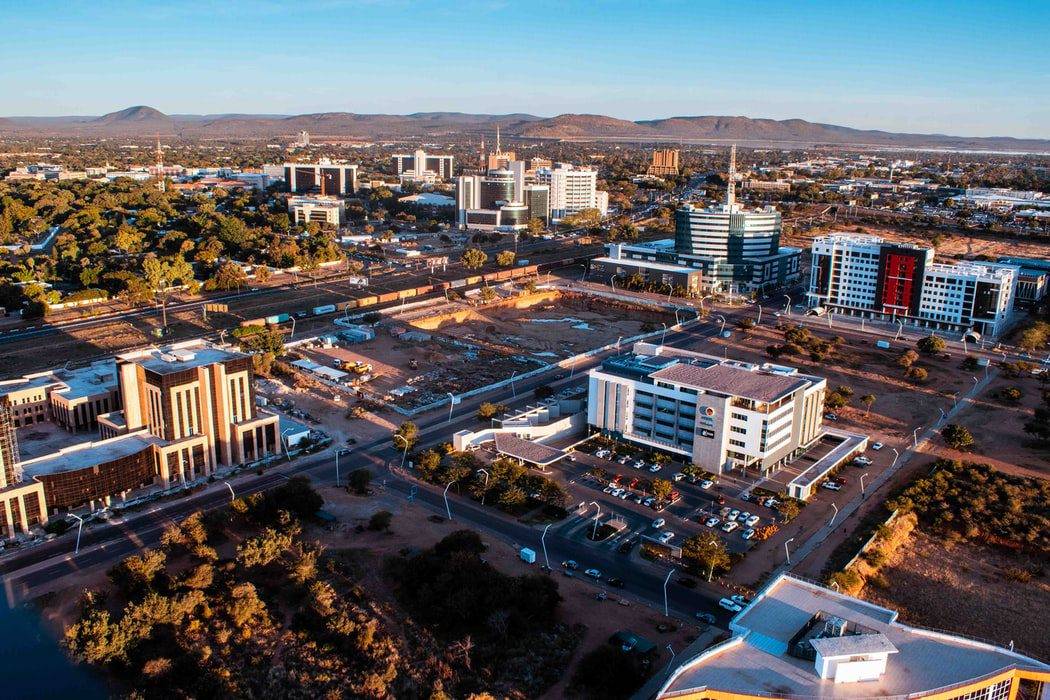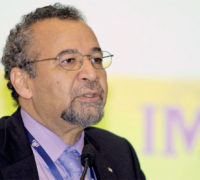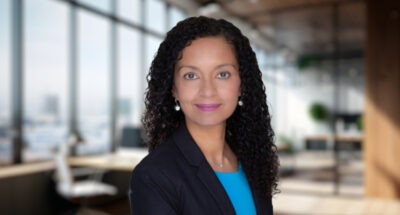
Busting the myths of M&A: 4 steps to success
Busting the myths of M&A: New research reveals why old merger strategies fail and how fresh thinking can lead to lasting value for both sides of the deal....

by Hischam El-Agamy, Montle M Maseko, Neo Mubambe, Refilwe S Seisa
Published 21 September 2023 in Finance • 8 min read
Globally, some 1.4bn adults are unbanked. Many studies have shown that banking the unbanked – that is to say, expanding access to financial services – can help reduce poverty by making it easier to save, borrow, and transfer money, not to mention start a business.
“Financial inclusion matters and is the cornerstone of development,” summarizes the World Bank in its most recent global banking survey, Findex 2021.
The good news is that more and more people are gaining access to bank accounts everywhere. The bad news, however, is that there are still populations that need more help. Strikingly, in Africa, more than 40% of adults remain unbanked. That compares with 26% in Latin America and just 6% in the United States.
What can be done on the ground in Africa, where 90% of financial transactions are still cash-based? How can we help people access the money they need for emergencies, education, healthcare, and entrepreneurship? Innovative solutions from fintech startups and mobile payments platforms are helping, yet more remains to be done.
In this context, we at the Absa Bank team in Botswana find a traditional, homegrown idea offers a fresh beacon of hope. “Community group savings” have served as lifelines for the un- and underbanked for years now.
In a nutshell, community group savings operate on a simple yet effective concept. Community members voluntarily come together to form a group and contribute a fixed amount of money regularly. This creates a shared pool of funds, which is made available to members on a rotational basis. Recently, group savings have gained traction in the face of increasing demand for financing options.
To explain the origin of the project, a bit of history is in order. It was about seven years ago that the United Kingdom-based Barclays Bank, which used to be Absa’s majority shareholder, announced that it was refocusing on its core UK and US markets. This signified an end to its 11-year partnership with Absa, during which the two groups had integrated systems, processes, and policies.
Around 2016’s divestment, Absa was faced with the challenge of fundamentally redesigning its identity and strategy. Our organization took time to rethink its core values and ways of doing business as an integrated pan-African organization. This is how Absa’s conception of Africanacity was born. Absa defines Africanacity as the distinctly African ability to get things done with tenacity, ingenuity, creativity, audacity, and positivity. With this in mind, developing Absa’s talent became a top priority of its cultural transformation to meet changing needs.
So, Absa turned to IMD to shape its learning and development initiatives, targeting people at many levels of Absa’s organization. The resulting learning journeys included customized programs and corporate entrepreneurship projects enriched with coaching, mentoring, and career-development sessions.

As program participants, we all applied our areas of expertise to collaborative intrapreneurship projects. Embodying innovation at speed, project work included concept testing and product prototyping – and, crucially, getting out of the office to engage with stakeholders. Each project had to meet a set of SMART criteria: that is, being Specific, Measurable, Action-oriented, Relevant and Time-bound.
We joined forces with Consumer Credit Risk (Neo Mubambe), Retail Digital Channels (Refilwe Seisa), and the People Functions (Montle Maseko) to take ‘Extending the Group-Savings Model in Botswana’ as our Enterprise Project during the Absa-IMD learning journey LEAP. It was conceived as an inclusive banking solution for Botswanans, but also as a solution that could be applied elsewhere in Africa. The project was supervised by Dr. Hischam El-Agamy, Director of IMD Learning Journeys.
Group savings operate on a simple yet effective concept. Community members voluntarily come together to form a group and contribute a fixed amount of money regularly. These contributions create a shared pool of funds, which is then made available to members on a rotational basis or in times of need. Group savings rely on participants’ spirit of trust, cooperation, and financial discipline.
When they work, they help; but there are risks to be heeded. For one thing, the pool of funds is limited by members’ contributions, which might not be sufficient for the group’s funding needs. Also, most group savings lack legal frameworks, exposing them to potential abuses. In too many cases, the groups’ treasurers misuse funds without the knowledge or consent of other members and then fail to repay the funds when needed.
Our project work is based in Botswana, a country that was one of the world’s poorest five decades ago. Now, it is considered middle-income and one of Africa’s most stable nations, home to the continent’s longest uninterrupted democracy and a population of 2.65m. However, because of Botswana’s heavy reliance on diamond exports, its economy closely follows global price trends for that commodity. Currently, around 24% of Botswana’s population remains unbanked, below the African continent’s average, but high enough to hold back segments of its economy.
Community group savings have served as lifelines for the un- and underbanked for years now.
In this context, back in 2016, Absa Bank Botswana (then Barclays Bank Botswana) first introduced a group savings product to provide a much-needed platform to help safeguard group contributions, ensure transparency, and solicit consent from members for any withdrawals from the fund. It was called “motshelo”, local Tswana word describing the group of people who come together to save. Motshelo members include many in informal working situations (e.g., street vendors, house cleaners, and casual laborers), especially women. Our Motshelo banking product was the first of its kind in Botswana and has grown to service over 10,000 groups consisting of between two and 10 members each. Absa’s Motshelo members collectively raise over BWP 200m ($15m) in savings annually.
In 2023, Absa Bank Botswana augmented its Motshelo saving product by offering credit facilities with the group’s savings funds as collateral. This is a first in its local market, as traditional credit policies would not acknowledge informal groups as legal parties to a loan. We worked hard on this to ensure customers’ rights were protected, while regulatory requirements were met.

Absa’s Motshelo loan product effectively lowers barriers to credit and enables Motshelo members to acquire structured-term facilities from the bank. It extends similar loan parameters (amounts and repayment periods) as those used for conventional loans.
Helping members to build equity and wealth, this innovative product aligns with Absa’s mission to be an active force for good, promoting sustainable development in our communities. However, we also realize that integrating group saving practices must be approached with sensitivity to more impoverished communities’ particular cultural and social dynamics. We are working to ensure that their values and needs are respected in the process.
At the end of the day, we believe that this innovative offering could be adapted to other African settings. Its principles can be tweaked and localized to suit customer and regulatory needs in new markets.
And that can help increase financial inclusion, with Africanacity.

Executive Director for Middle East and Africa at IMD
Hischam has been an Executive Director at IMD since 1999. He is responsible for IMD’s activities in Africa, the Middle East and South-Central Asia. El Agamy’s expertise and teaching experience include scenario planning, entrepreneurship, family business transformation, private – public partnership and stakeholder engagement. He is teaching regularly in IMD customs programs and taught in several IMD open programs, including the EMBA and MBA programs.

People (HR) Governance Officer at Absa Bank Botswana Limited
Montle M Maseko is a People (HR) Governance Officer at Absa Bank Botswana Limited with nine years’ experience within the HR function. She is dedicated to servicing employees by crafting quality unforgettable experiences at every stage of the employee’s life cycle.

Head of Retail Credit Risk at Absa Bank Botswana
Neo Mubambe is the Head of Retail Credit Risk at Absa Bank Botswana. He has over 10 years’ experience in risk with a specialty in credit risk. Neo has been at the forefront of the bank’s risk management strategies through key stress events which include commodity price slump as well as the recent COVID-19 pandemic.

Digital Wallet Product Manager at Absa Bank Botswana
Refilwe S Seisa is a Digital Wallet Product Manager at Absa Bank Botswana, with over 10 years’ experience in the banking sector. Refilwe has a deep passion for financial inclusion and innovation in the financial technology sector, and this has been especially highlighted in her current role and other projects within the business.

July 7, 2025 • by Patrick Reinmoeller, Markus Nicolaus in Finance
Busting the myths of M&A: New research reveals why old merger strategies fail and how fresh thinking can lead to lasting value for both sides of the deal....

April 24, 2025 • by Jerry Davis in Finance
Many regional developers have tried and failed to emulate Silicon Valley’s VC-driven model for innovation. Detroit, the birthplace of Ford, is following an alternative route – with promising results....
 Audio available
Audio available
April 23, 2025 • by Karl Schmedders in Finance
CFOs must drive a financially disciplined way to manage environmental risks amid growing pushback against environmental sustainability efforts, explains IMD’s Karl Schmedders....

April 11, 2025 • by Jim Pulcrano in Finance
IMD's Jim Pulcrano interviews Ruchita Sinha, General Partner of venture capital firm AV8 Ventures, and explores her approach to early-stage investing....
Explore first person business intelligence from top minds curated for a global executive audience